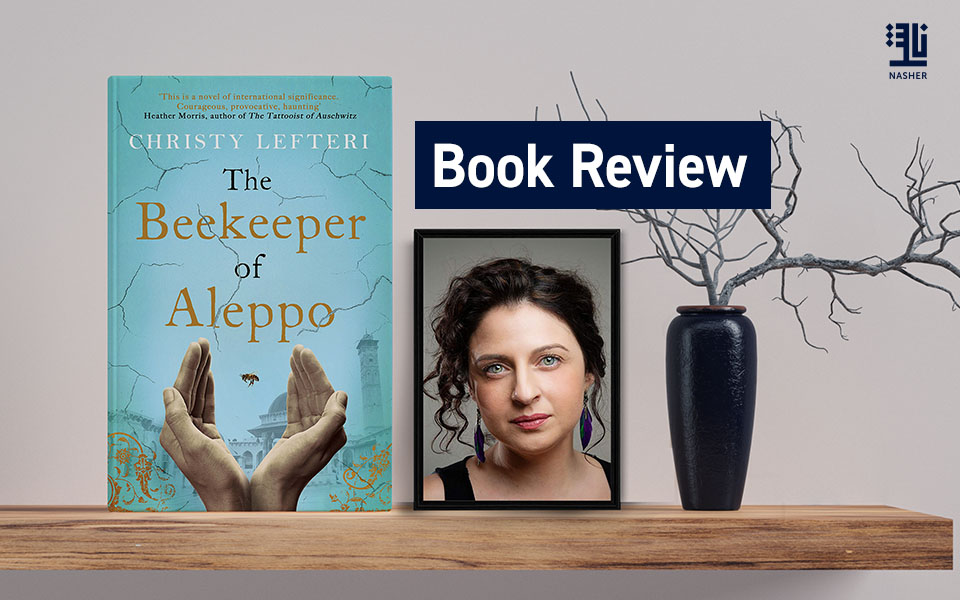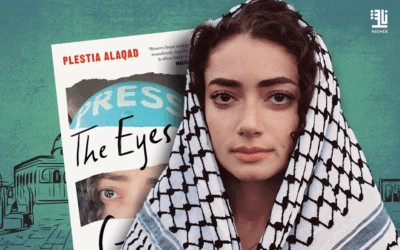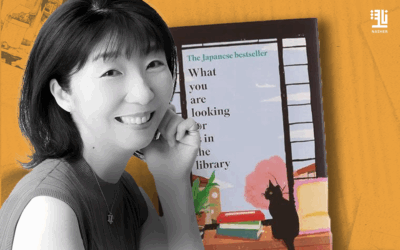Author: Christy Lefteri
Page count: 378
Original language: English
Nuri is a beekeeper; his wife, Afra, an artist. They live a simple life, rich in family and friends, in the Syrian city of Aleppo – until the unthinkable happens. When all they care for is destroyed by war, they are forced to escape. But what Afra has seen is so terrible she has gone blind, and so they must embark on a perilous journey through Turkey and Greece towards an uncertain future in Britain. On the way, Nuri is sustained by the knowledge that waiting for them is Mustafa, his cousin and business partner, who has started an apiary and is teaching fellow refugees in Yorkshire to keep bees.
As Nuri and Afra travel through a broken world, they must confront not only the pain of their own unspeakable loss, but dangers that would overwhelm the bravest of souls. Above all – and perhaps this is the hardest thing they face – they must journey to find each other again.
From the very first page, Christy Lefteri’s book is gripping and poignant. It is told from the point of view of Nuri, a Syrian refugee and former beekeeper. Though he and his wife, Afra, have arrived in the United Kingdom, they have lost nearly everything in the journey — including Afra’s sight. Blind and in pain, Afra relies on her husband for everything, even as they sit waiting for approval to see a doctor and be granted asylum. In chapters alternating between their life in a boarding house and their journey as refugees to get there, Lefteri presents readers with a powerful and unflinching look at the refugee crisis and reminds us that these are people and not a number in the government’s statistics.
Nuri is a strong, determined man with plenty of good character, but as he chronicles his family’s journey from war-torn Syria through Turkey, Greece and finally the UK, he exposes a darker side, one that has suffered unimaginable and traumatic losses. Nuri and Afra were happy once, with Nuri working as a highly successful beekeeper with his cousin, Mustafa, and Afra painting and looking after their young son, Sami. Though Nuri and his cousin were peaceful men, the war soon came for them, taking Mustafa’s son from him and forcing him and his remaining family to flee. Like too many, Nuri and Afra waited too long and were forced to escape in the dark of night, leaving their home, Afra’s vision and the body of their only son behind. This loss reverberates through the book, not only in quiet moments of grief but in heated moments of resentment and tension between Nuri and Afra that follow them far past the deserts of Syria.
After two summers volunteering in a refugee centre in Athens as thousands of families flooded into Greece, Christy Lefteri found herself wondering what it means to see, and be seen. From the question sprang her second novel, which follows Nuri, a Syrian beekeeper, and his wife Afra, an artist blinded by an explosion, on a journey to find safety in the U.K.
We tend to hear refugee stories in the abstract: millions of people fleeing war, poverty and persecution–words that carry no specifics. But in The Beekeeper of Aleppo, Lefteri gives us a deeply researched, intimate look at the lives of one couple. Narrated by Nuri, the novel weaves together two time lines: one starting in Aleppo in 2015 as the couple decides to leave Syria and make the dangerous journey through Turkey and Greece, and the other from a seaside town in England the following year, where they are applying for asylum. Lefteri subtly critiques media portrayals of refugees, asking us to delve beyond the crisis imagery we see.
A former psychotherapist and the daughter of Cypriot refugees, Lefteri sensitively charts what it’s like when war comes home, alert to the subtle effects of trauma and grief. Nuri and Afra are not broadly sketched as victims, but rather suffer in different and complex ways from PTSD–a condition still rarely explored in literature beyond the accounts of veteran fighters or war correspondents. Nuri and Afra manage to escape their shattered hometown, but they cannot escape the memories that haunt them. “You are lost in the darkness,” Afra tells Nuri, reminding us that even if she is the one who has lost her sight, he is even more cut off from his loved ones–and himself. Lefteri’s slow-building narrative rarely veers into sentimentality or overwhelming bleakness. Nuri’s love of beekeeping and Afra’s gift for art, interspersed with happier recollections of Syria, offer a glimpse of the beauty still within their reach. By creating characters with such rich, complex inner lives, Lefteri shows that in order to stretch compassion to millions of people, it helps to begin with one.
Lefteri never shies away from an honest description, from dead bodies to snipers and even rape, but she makes it clear that this is only one story, and the world is full of others that are possibly even more horrifying.
Perhaps most gripping of all is Nuri’s personal battle with his mind, which seems to have turned on him, tricking him into seeing things that aren’t there and speaking to ghosts. As he comes to terms with his situation, he begins to wonder if he has lost all hope and that is why he is struggling.
The Beekeeper of Aleppo is not an easy read, emotionally it can drain you but it is a story that must be told to give justice to the millions of refugees around the world, each with their own sad tale. We have given it 4 marks out of 5.







